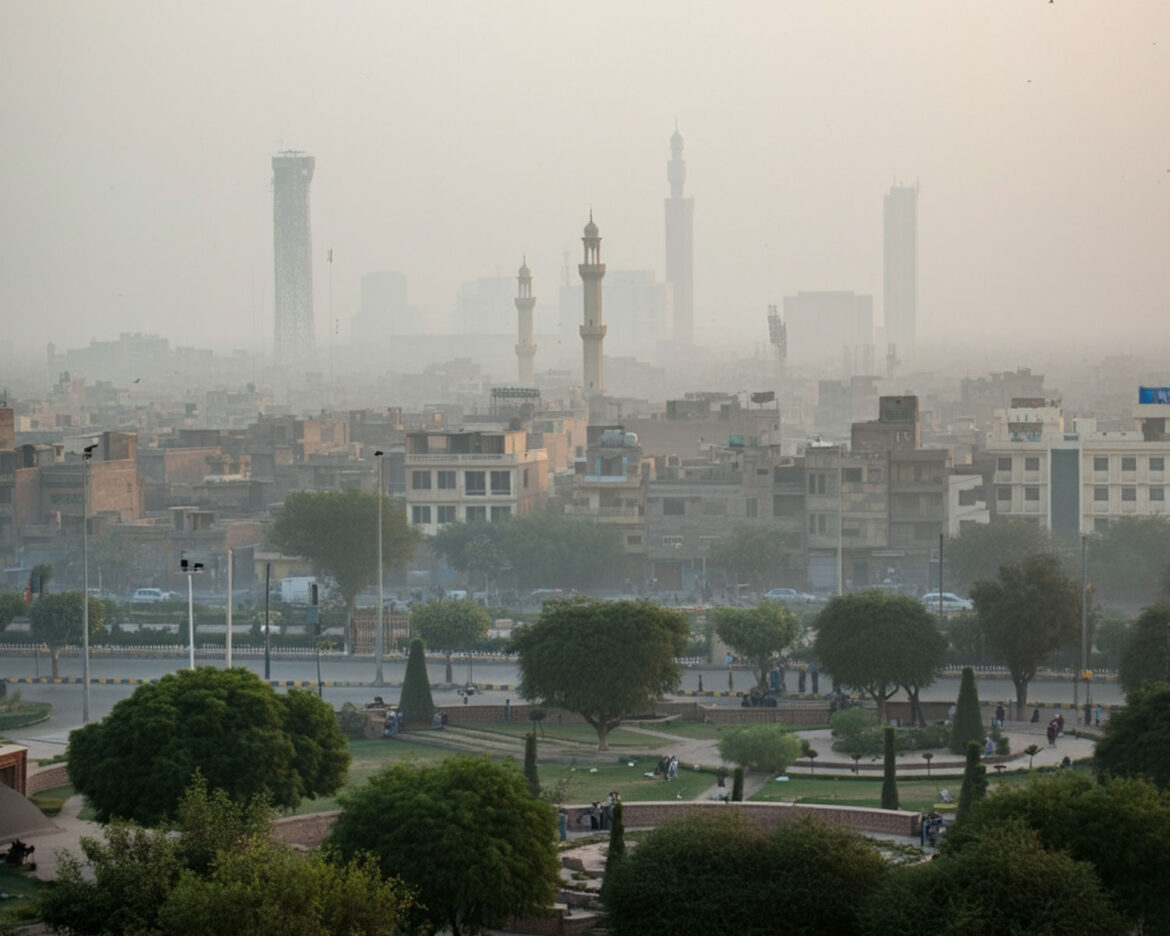Lahore, Pakistan – The air quality in Lahore has reached a critical level, with the Air Quality Index (AQI) soaring to an alarming 1000, marking one of the worst days for pollution in the city’s history. This unprecedented spike in air pollution has raised serious health concerns among residents, many of whom are now advised to limit outdoor activities and wear masks to protect themselves from harmful pollutants.
The sharp increase in AQI has been attributed to a combination of factors, including vehicular emissions, industrial discharge, and seasonal crop burning in surrounding areas. Authorities are urging residents to take precautions, particularly vulnerable groups such as children, the elderly, and those with pre-existing respiratory conditions.
Health experts warn that prolonged exposure to such high levels of air pollution can lead to serious health issues, including respiratory diseases, cardiovascular problems, and even long-term damage to the lungs. Hospitals in the region are reportedly experiencing a surge in patients suffering from asthma and other respiratory ailments.
In response to the worsening situation, the Punjab Environmental Protection Agency has announced emergency measures aimed at reducing pollution levels. These include increased monitoring of industrial emissions and stricter enforcement of regulations related to vehicle emissions.
Residents are encouraged to stay indoors, use air purifiers, and ensure that their homes are well-ventilated to mitigate the impact of poor air quality. The government is also seeking public cooperation in reducing emissions by minimizing the use of private vehicles and avoiding outdoor burning activities.
As Lahore grapples with this environmental crisis, many are calling for immediate action and long-term solutions to combat the persistent air quality issues that have plagued the city for years.



